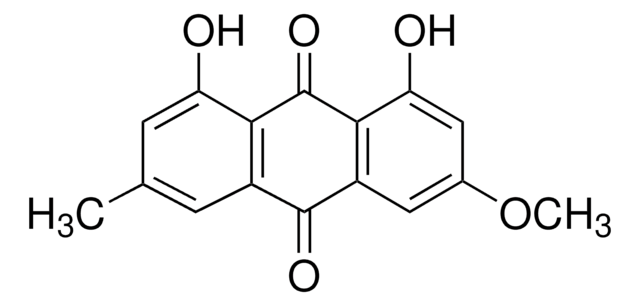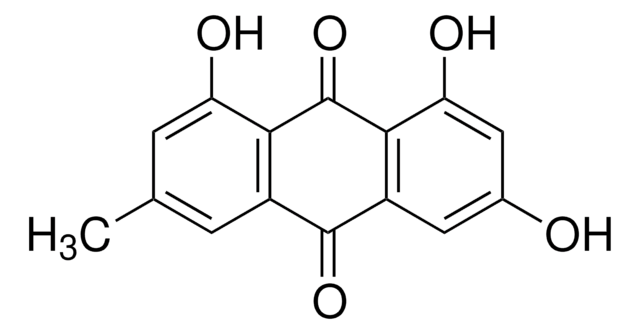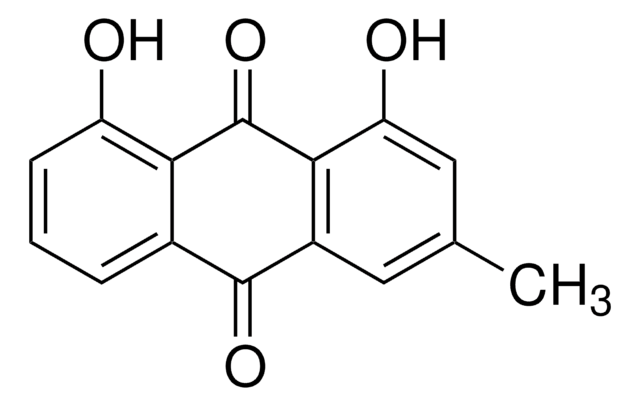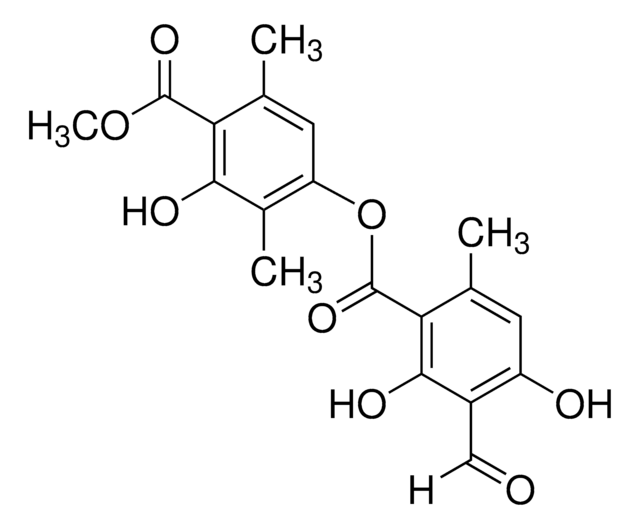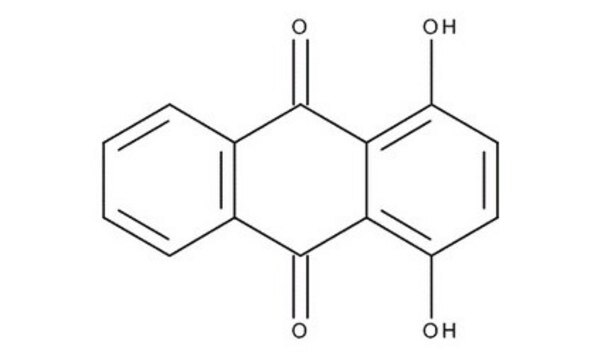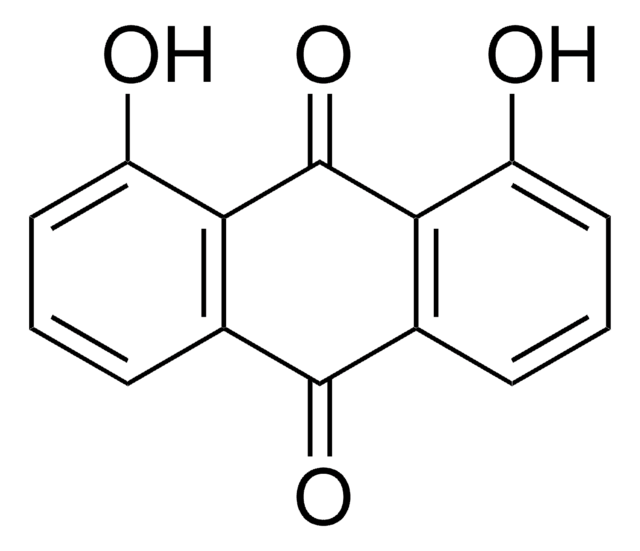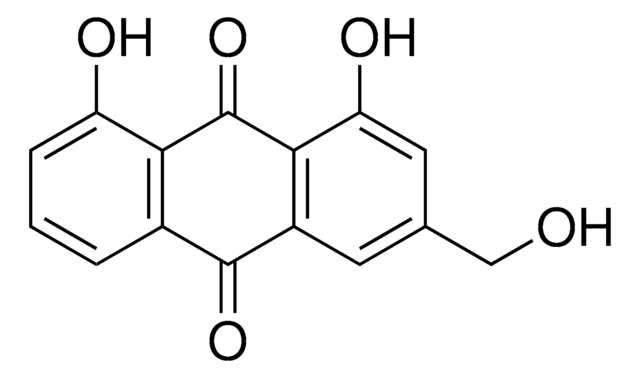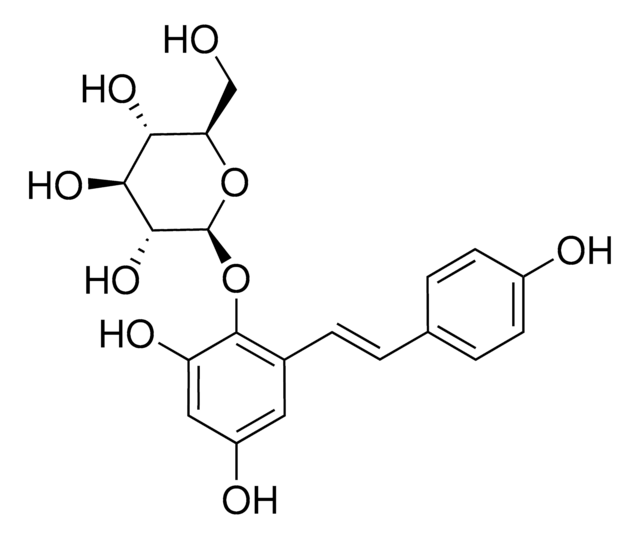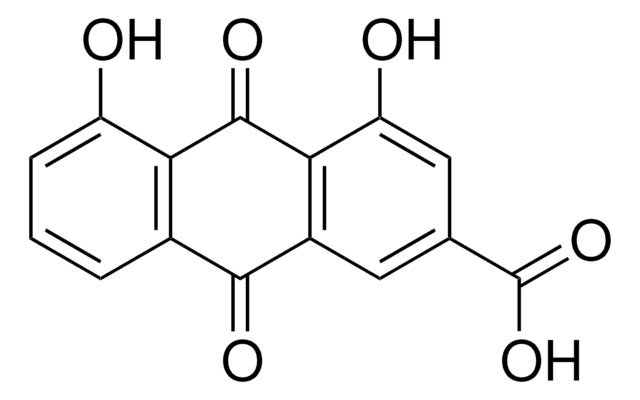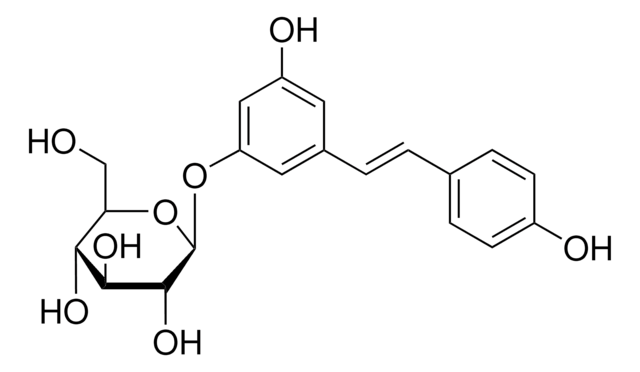17797
Physcion
≥98.0% (TLC)
Synonym(s):
1,8-Dihydroxy-3-methoxy-6-methylanthraquinone, 6-O-Methylemodin, 6-Methoxychrysophanic acid, Emodin-3-methyl ether, Parietin, Rheochrysidin
About This Item
Recommended Products
Quality Level
assay
≥98.0% (TLC)
antibiotic activity spectrum
fungi
SMILES string
COc1cc(O)c2C(=O)c3c(O)cc(C)cc3C(=O)c2c1
InChI
1S/C16H12O5/c1-7-3-9-13(11(17)4-7)16(20)14-10(15(9)19)5-8(21-2)6-12(14)18/h3-6,17-18H,1-2H3
InChI key
FFWOKTFYGVYKIR-UHFFFAOYSA-N
Gene Information
human ... ELA2(1991)
Looking for similar products? Visit Product Comparison Guide
Related Categories
Application
Biochem/physiol Actions
Packaging
signalword
Warning
hcodes
Hazard Classifications
Acute Tox. 4 Oral
Storage Class
11 - Combustible Solids
wgk_germany
WGK 3
flash_point_f
Not applicable
flash_point_c
Not applicable
ppe
dust mask type N95 (US), Eyeshields, Gloves
Certificates of Analysis (COA)
Search for Certificates of Analysis (COA) by entering the products Lot/Batch Number. Lot and Batch Numbers can be found on a product’s label following the words ‘Lot’ or ‘Batch’.
Already Own This Product?
Find documentation for the products that you have recently purchased in the Document Library.
Customers Also Viewed
Our team of scientists has experience in all areas of research including Life Science, Material Science, Chemical Synthesis, Chromatography, Analytical and many others.
Contact Technical Service